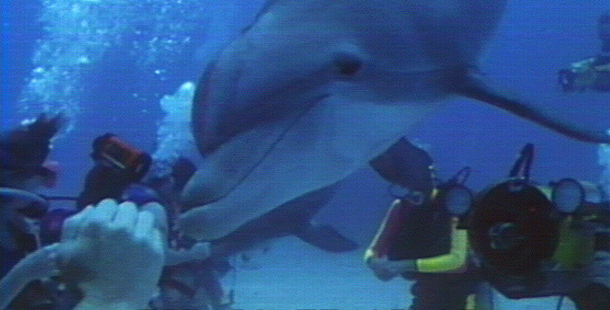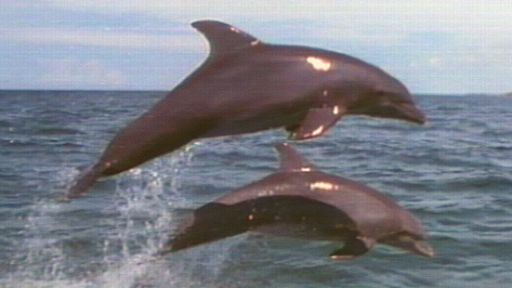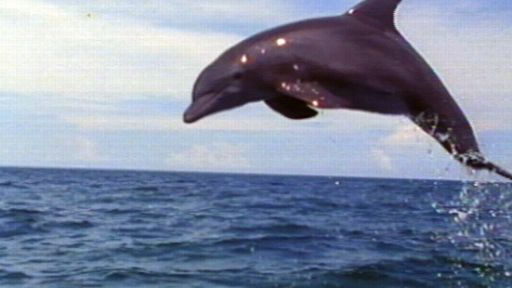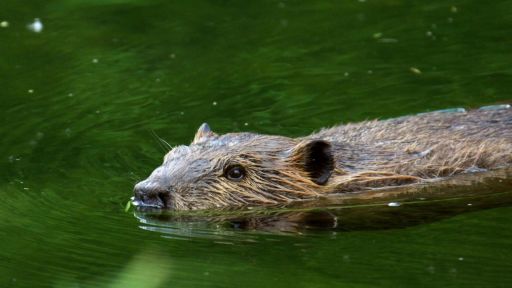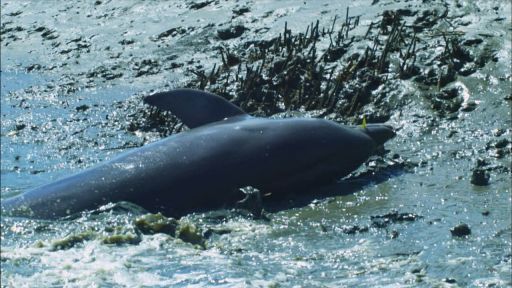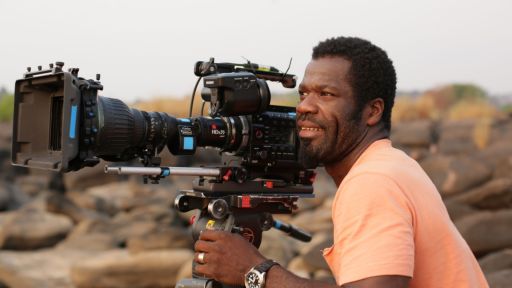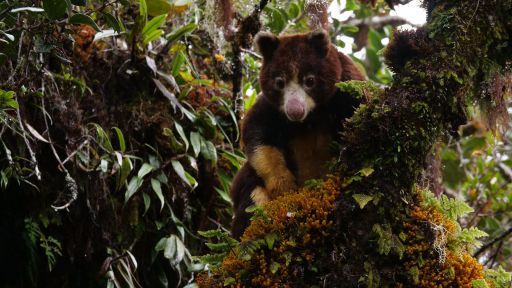Every year, millions of people pay dearly to watch dolphins leap through hoops or to swim alongside as the animals glide around a pool. For many, it is the chance of a lifetime to get close to an animal they consider almost human. What’s more, some of these captive dolphins seem to enjoy their contact with humans. And trainers say the programs offer an important opportunity to learn about dolphin biology and behavior, and to teach people about the importance of protecting their wild cousins.
But critics say that the celebrated “dolphin’s smile” — formed by the shape of its jaw — is only an illusion. Captive dolphins, they argue, are our prisoners, not our partners. Domesticated dolphins, says former dolphin trainer Ric O’Barry, “have been reduced to performing circus clowns.”
NATURE’s Dolphins: Close Encounters gives viewers a chance to judge for themselves after hearing from both critics such as O’Barry and supporters of captive dolphins. Much of the debate focuses on the wisdom of keeping bottlenose dolphins in captivity, since they are the species most commonly found at theme parks and “swim with dolphins” programs. Ironically, the bottlenose’s lifestyle in the wild probably prolongs its life in concrete pools.
“Many species are difficult to keep in captivity,” says John Reynolds, a marine mammologist at Eckerd College in Florida. But “because [the bottlenose] is used to shallow waters and navigating around bottoms and around obstacles, one of the things it does well is adapt to captivity,” he recently told the radio program Florida Environment.
But Eckerd says the image of the “friendly dolphin” promoted by the media may be off target. Dolphin behaviors that people interpret as “loving,” he says, are behaviors they would apply even toward inanimate objects. “We simply choose to interpret them as wonderful, caring acts.”
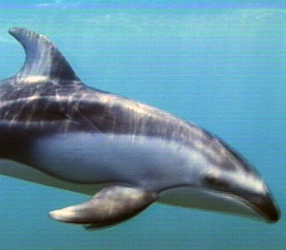 He also notes that “swimming with them or otherwise interacting closely with them doesn’t necessarily do the animals any good, even though those activities are done with the best of all possible intentions.” And he urges caution: “They’re not trivial animals,” he says. “They’re not animals we should underestimate in terms of their physical power. Dolphins are big predators: big dolphins can weigh 600 pounds or more. There are instances of dolphins actually killing people.” In Brazil, for instance, an aggressive male dolphin head-butted an overly friendly swimmer, killing him.
He also notes that “swimming with them or otherwise interacting closely with them doesn’t necessarily do the animals any good, even though those activities are done with the best of all possible intentions.” And he urges caution: “They’re not trivial animals,” he says. “They’re not animals we should underestimate in terms of their physical power. Dolphins are big predators: big dolphins can weigh 600 pounds or more. There are instances of dolphins actually killing people.” In Brazil, for instance, an aggressive male dolphin head-butted an overly friendly swimmer, killing him.
“The future that I’d like to paint for dolphins,” Reynolds says, “is one where we continue to have great respect for what the dolphins are and can do.” But, he suggests, we should do it from a greater distance.
In the film Dolphins: Close Encounters, we witness the plight of two lone dolphins — one at a motel where people are gazing down at it from a balcony, and one towing an inflatable alligator around in the water. When this film was made, over ten years ago, it would have been fairly commonplace to find captive dolphins in conditions like these. And sadly, dolphins that have been captive and isolated for long periods of time, such as these two were, are usually unable to survive a release into the wild, because they have become so acclimated to captive life.
The good news is that concerned activists are having some success in making a difference for animals like these. Legislation protecting animals captured for commercial use is improving, though continued support for programs working on their behalf is always important. And certainly one goal would be to see that in the future we will see no more animals in captivity at all.
For further information on these dolphins, on others like them, and on what you can do to help, you can contact:
Ric O’Barry
The Dolphin Project
POB 224
Coconut Grove, FL 33233
305-668-1619
http://www.dolphinproject.org
The NMFS Office of Protected Resources, which administers programs under the Marine Mammal Protection Act
http://www.nmfs.noaa.gov/prot_res/overview/mm.html
Other resources are:
http://www.earthisland.org/immp/

